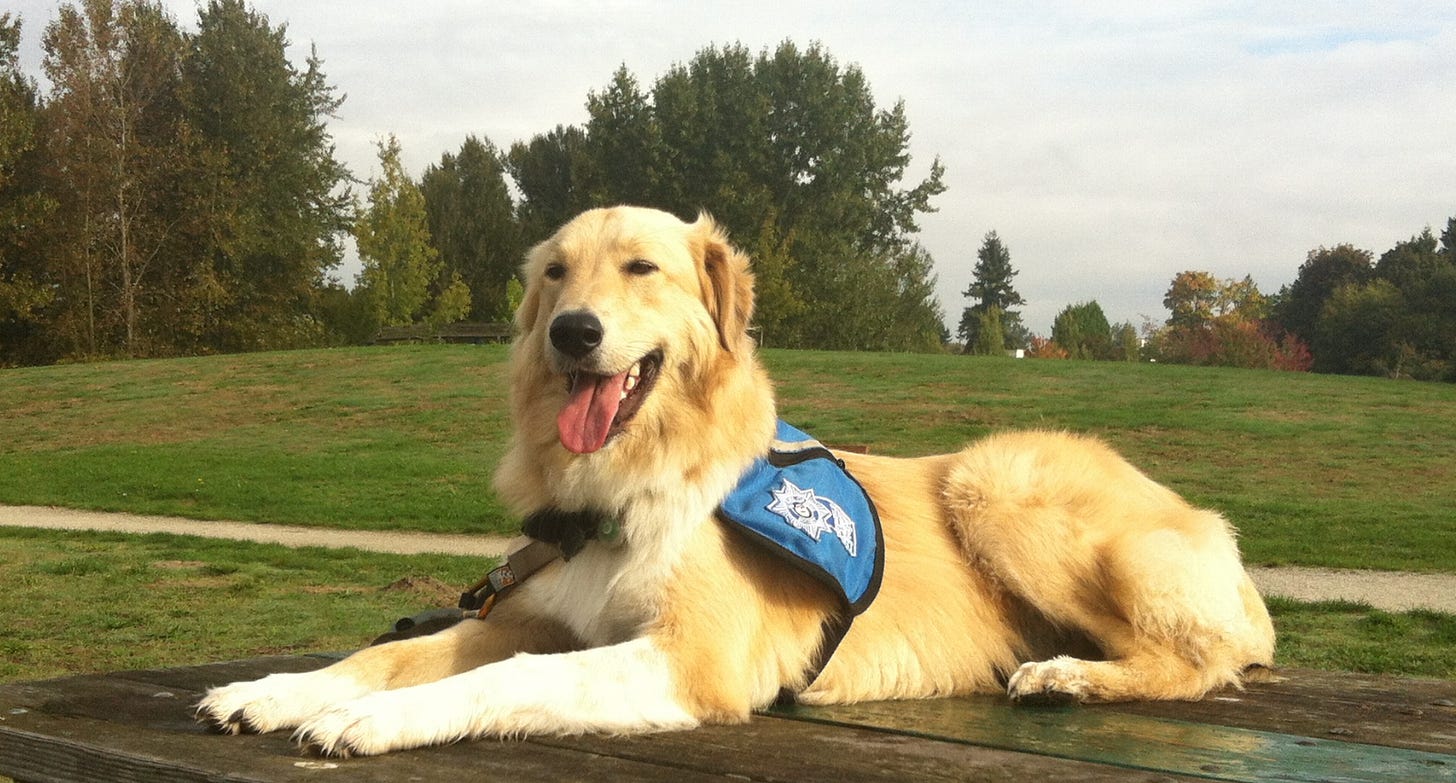Who's a Good Dog? Meet Citadel Canines at Harmony Centre
Each month, Lorraine writes about the people and the community groups that make Harmony Centre the remarkable facility it is today.

REPRINTED WITH PERMISSION
by Lorraine Campbell for Harmony Centre
On Wednesday mornings, a unique team meets at the Harmony Centre. Earlier this month, I waited in the lobby to meet them. Shortly after I arrived, Hugo walked in, a bundle of controlled energy, eyes focused on Scott.
I made the obvious mistake of stepping …
Keep reading with a 7-day free trial
Subscribe to The Owen Sound Current to keep reading this post and get 7 days of free access to the full post archives.




